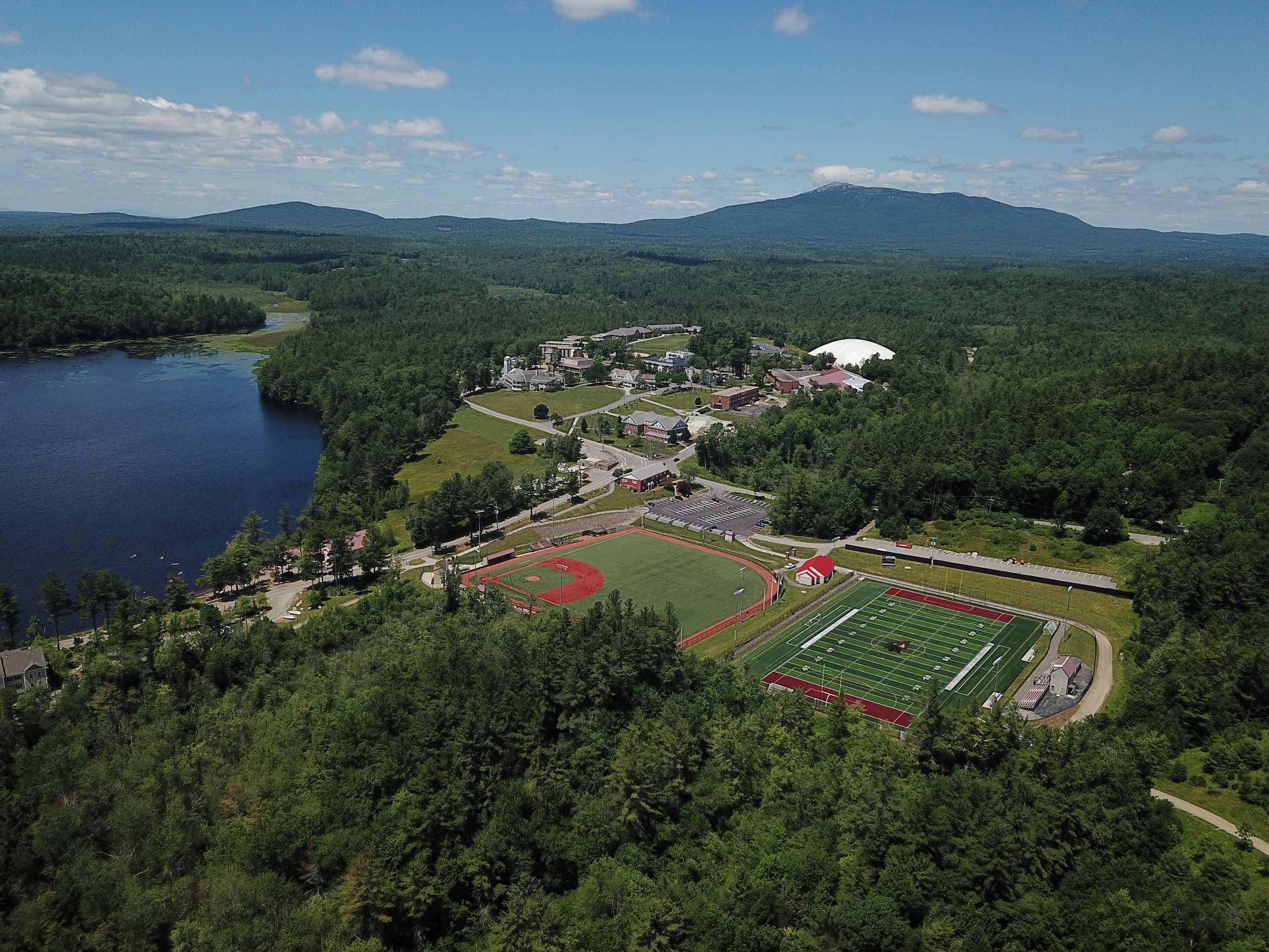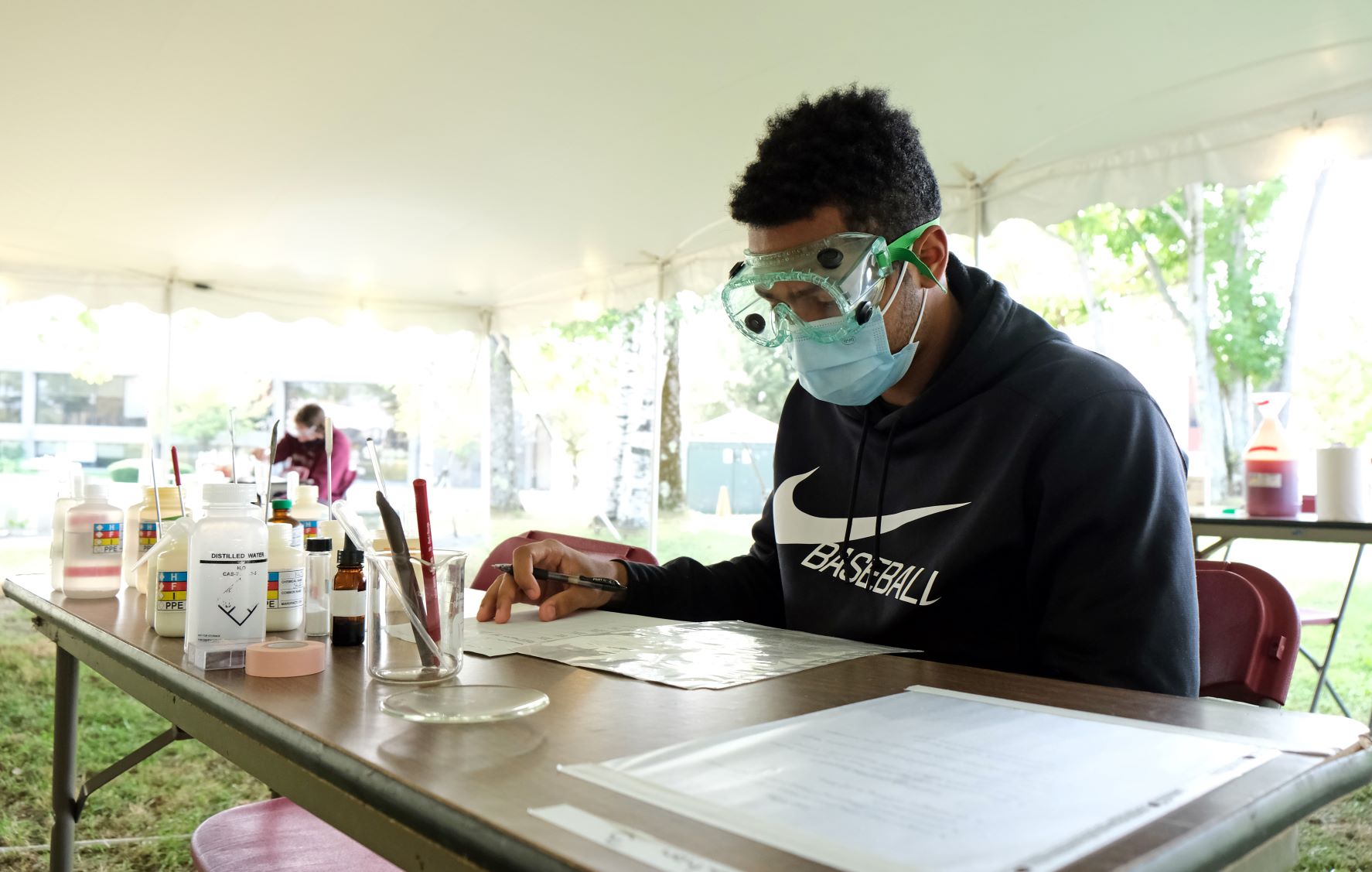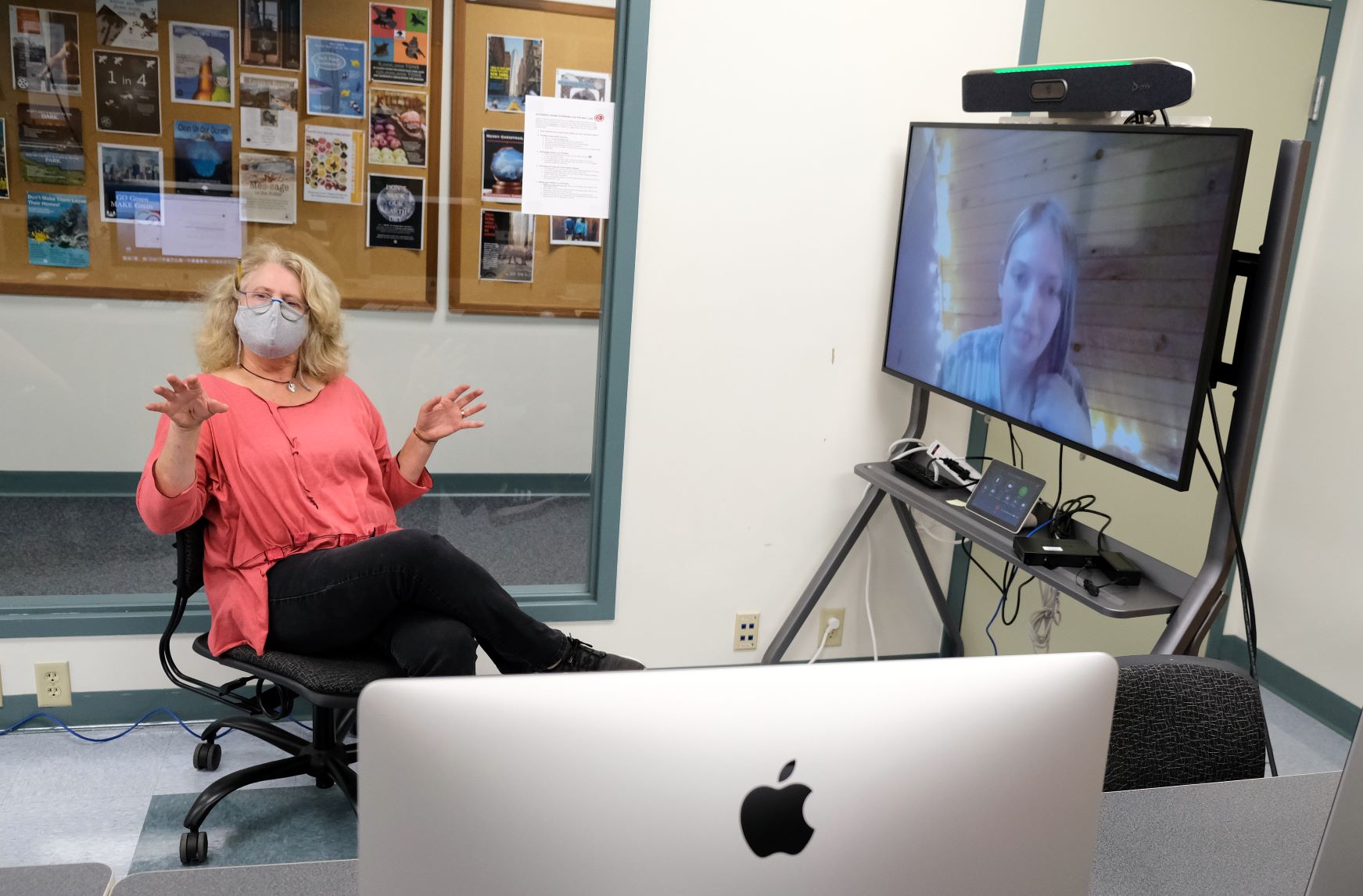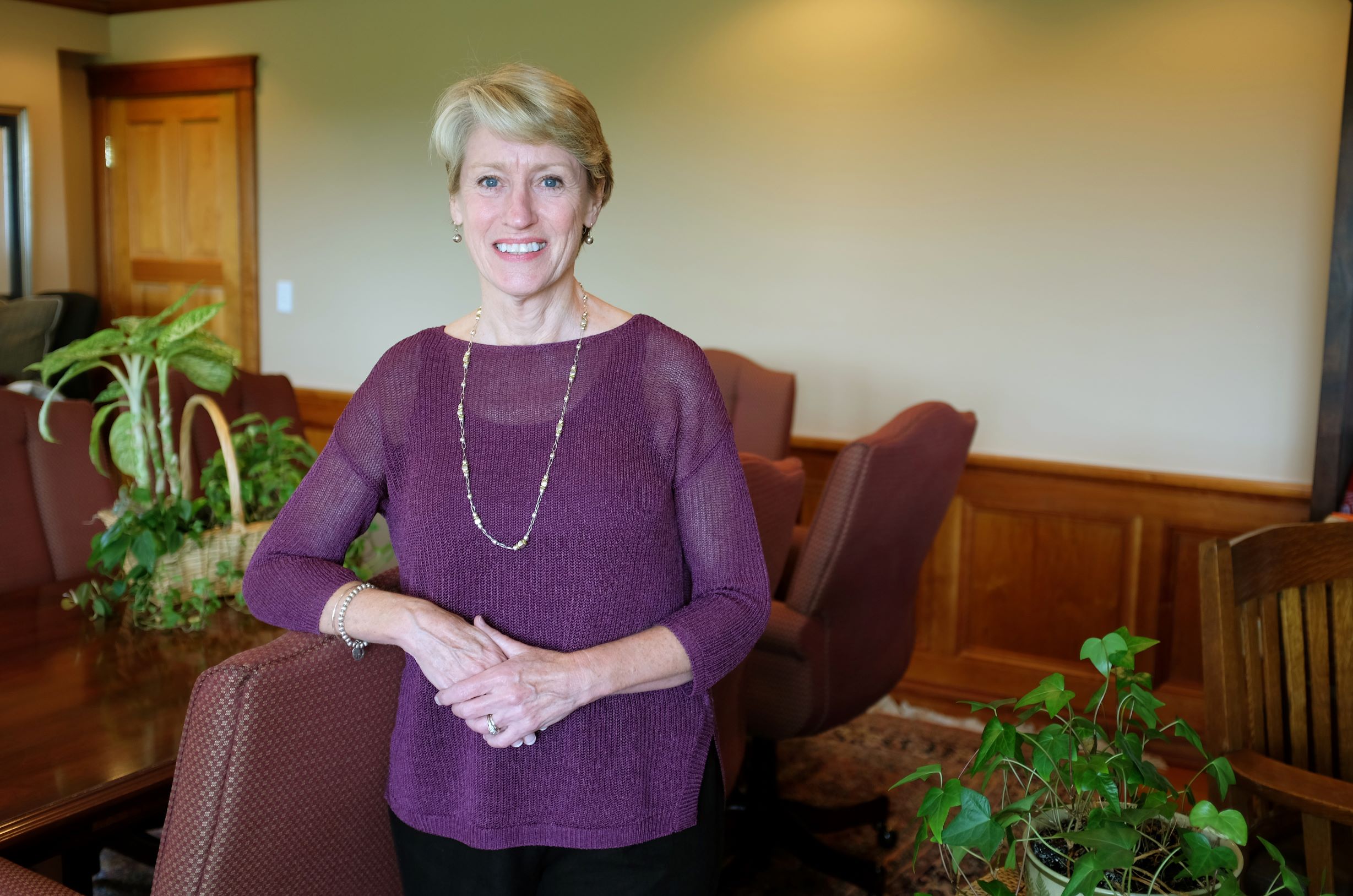Franklin Pierce University sits on a hilltop in Rindge N.H., flanked by picturesque Pearly Pond and Mount Monadnock. The fall colors have finally given way to what will be a winter wonderland, offering a breathtaking backdrop for this sprawling 1,200-acre institution that has served students since 1962.
It is a place where Kim Mooney began her studies and where she has lived for the past 13 years, first as provost and in the past five as its president.
“It’s intimate. It’s private. It’s bucolic,” Mooney says. “It’s absolutely beautiful.”
So, even as the COVID-19 pandemic took hold, she was determined to keep it open. Because of the nature of its programs and its idyllic setting, which lets students enjoy a wealth of outdoor options such as hiking and kayaking, a return to a live campus became the preferred option in the fall.
“Why wouldn’t that be our starting premise?” Mooney says. “It became clear that information was going to be fluid and that uncertainty was simply going to prevail. Once you accept those circumstances, and you know that’s the environment you’re planning for, you just move ahead.”
And they did. Rather than going in with “blind enthusiasm or inflexibility,” Franklin Pierce instead leaned on smart planning, a core of working groups and the determination of its campus community to open in person. It recently completed its semester safely, with just 26 positive cases of coronavirus among a community of more than 2,000 students.
Weekly meetings on Zoom led to many positive outcomes, including the ability of those groups to: communicate effectively; identify problems early; and be a valuable resource for the campus community and the region.
“What responding to an international public health crisis did for Franklin Pierce University was it gave us an incredible sense of renewed purpose,” Mooney says. “We are resilient. I know a lot of institutions say that. This university has faced challenges over the years, and it doesn’t occur to us to take the path of least resistance. Now, I don’t imagine this university really ever going back to just conducting its business operations, or its teaching and learning, exactly the way we were when we were all here in March.”
Working toward a goal
As COVID-19 blistered through communities across the U.S. and jeopardized in-person learning for many institutions, the colleges and universities in New Hampshire remained focused on face-to-face instruction.
Several of Franklin Pierce’s high-profile programs rely on being on campus, including its allied health professions such as physical therapy, physician assistant studies and nursing. During a pandemic, it just made sense for those to be in person, if possible.
“Here we are training frontline health care providers; we had to get them back,” Mooney says. “There was an obligation to make sure that we were continuing to educate those frontline workers and our nurses. Our colleagues around the state were trying the same thing. We were all cheering each other on to be able to open.”
To facilitate that reopening, Mooney formed four working groups in the summer under a long-range planning committee to tackle new issues and provide solutions as circumstances changed on campus. She held virtual forums, met with student government leaders and sent video messages to students and families. Together they shored up safety measures and opened up the use of their expansive outdoor spaces.
“We set up nine or 10 tents early on for the return to campus in the fall,” she says. “We used those tents for all sorts of outdoor activities. Some of the biology labs wanted to be held out there. We really did encourage the students to be outside as much as possible. We took the time and care to celebrate milestones — such as the university’s Day of Giving, Founder’s Day, the end of the semester — and conducted most of these festivities outdoors.”
The reopening plan was buoyed by consistent two-way communication among constituents. Senior administrators met every Monday to review planned messages. Various working groups collaborated to discuss the changes happening across campus, including new policies and protocols. And Franklin Pierce got buy in from its community, including the students, who understood the benefits of being in person.
“Hats off to the students,” Mooney says. “The faculty and staff felt good about the plans we had developed over the summer. The only thing we didn’t know is how the students would respond to the new restrictions. They were incredibly mature and supportive, and they adapted very quickly to the way we had to conduct ourselves daily. That’s why we made it through the semester because they took things very seriously. And they wanted to be here.”
Always looking to the future
Because Franklin Pierce already had long-range planning in place, leadership has been able to focus less on minute pandemic details and more on its mission of building relationships with local, regional, state businesses and municipalities as well as being a resource for future workforce needs.
To that end, Franklin Pierce created a center for professional programs and partnerships to ensure that it can help educate a workforce that eventually will work for businesses in and around Rindge, Manchester and throughout New Hampshire. It has developed a co-op program with one of the area’s largest companies, C&S Wholesale Grocers, to help foster real world skill building. It is also working with municipalities on a program partnership to give employees a chance to further their education at Franklin Pierce.
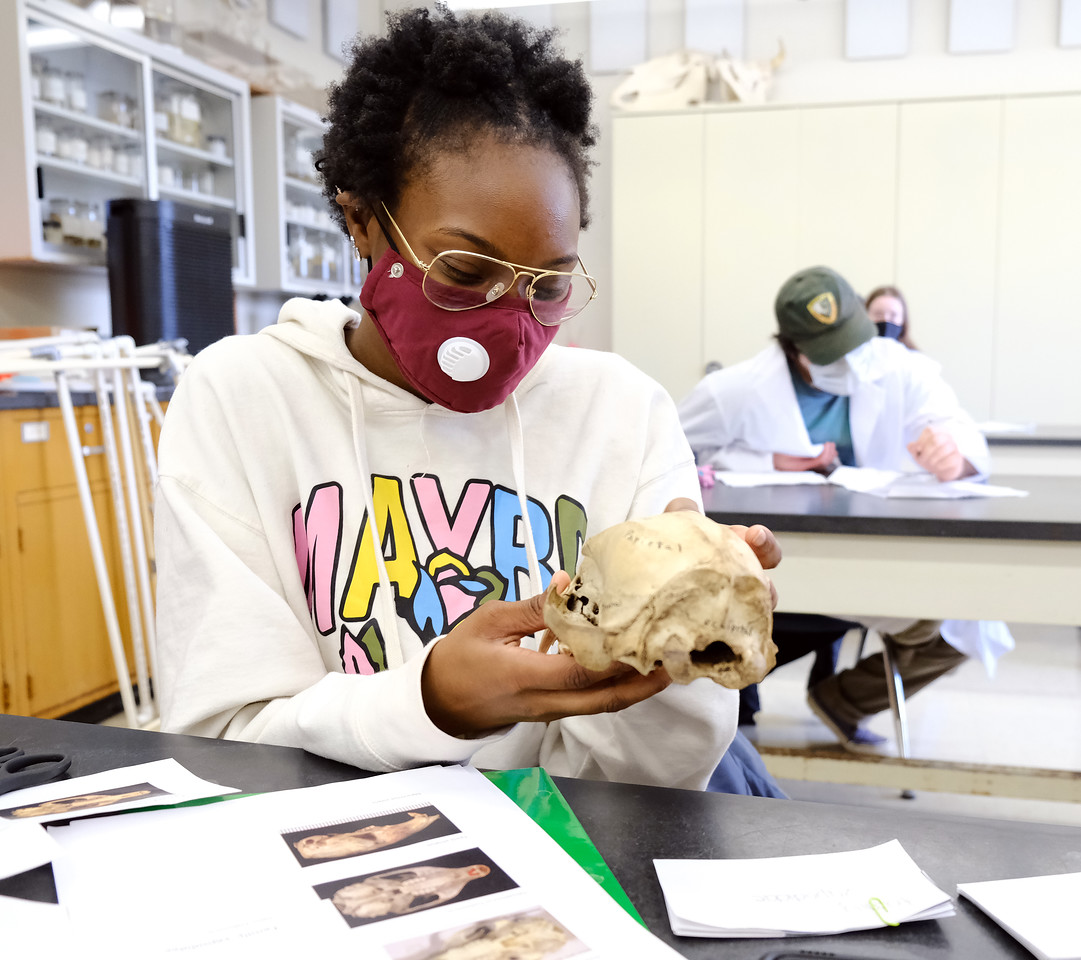 Even with the constant ebb and flow of COVID-19, Mooney says it is important to be focused on the future.
Even with the constant ebb and flow of COVID-19, Mooney says it is important to be focused on the future.
“I’m thinking about what new programs we need to be creating to address new needs that have emerged in the world of work – in the world of healthcare, in the world of education,” she says. “We are making sure that our educational outcomes, our teaching and learning goals, our new programs are all facing the future so that we are preparing our students to become change agents and address those needs that we haven’t even imagined yet.
“I haven’t read a lot of science fiction that sort of allows us to think about what a post-pandemic world looks like. But we have to use our imagination and try to shape our teaching and learning and education.”
Even as the working groups continue their efforts around the pandemic, she is also reimagining their future.
“I don’t want them to disperse per se,” she says. “I still think we’re going to need to focus on health and safety measures, how we’re going to do testing. All of that is still in play for the spring. But I do want to start creating think tanks to differentiate them from the working group.”
Reflecting on the past 10 months, she says she has a learned a few lessons about leading in a crisis.
“It’s never too late to start planning,” she says, “It’s important that the president step forward with the vision and the goals right at the start of planning to let their community know where they really want to see their college or university going. There has to be really good, ongoing communication that keeps everybody moving in the same direction and stays committed to the vision.”
Mooney says other college and university leaders have done exceptionally well in this very difficult moment.
“I’m proud of our industry, I’m proud of higher education,” she says. “It wasn’t a perfect fall for higher education. But I do think that many institutions proved that you can bring students and faculty and staff back to campus and keep them safe.”
As for Franklin Pierce, she is continuing to look ahead: The university has its 60th anniversary coming in two years and they’re already planning for it. She says being a leader of a university during this time, one that she attended, has been especially humbling.
“It’s really compelling to return to your alma mater to lead it. It gives you purpose every day.”

